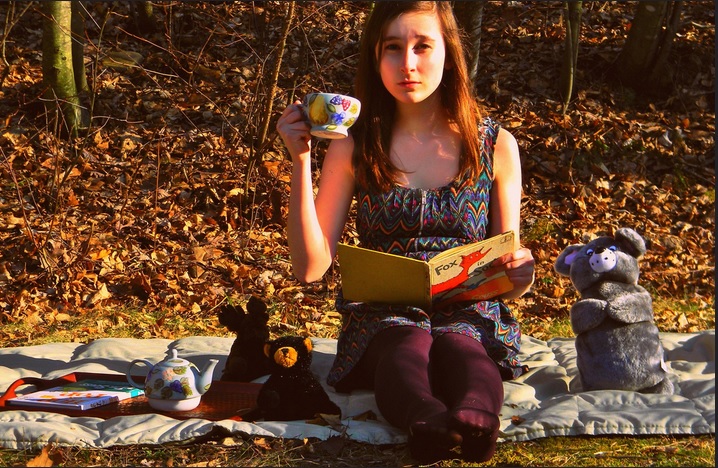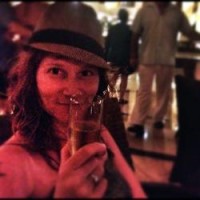This is part two of my “End of the Year” book list.
For part one (fiction and memoir) go here. To access the original post that inspired it all go here.
As I mentioned in part one, I read a lot this year. I was specifically trying to read different authors and different subject matters than I normally do.
This year, I wanted to remind myself more consciously that learning doesn’t ever have to stop—I wanted to feel my brain working. There’s so many things out there to be informed about—I can tell this is something I’m going to be working on for a long time.
I found myself challenged by what I read this year. Inspired, absorbed, awakened. Each of these books made me think and feel and grow in unexpected ways.
Short Story, Essays, Poetry
1. This is How You Lose Her, by Junot Diaz.
I loved this collection. I didn’t realize that I was being introduced to a character who Diaz had already written about twice before, but his familiarity with his protagonist allows the reader to immediately enter Yunior’s world. This is beautiful, hard, enticing stuff.
2. Switch Bitch, by Roald Dahl.
3. If You Liked School, You’ll Love Work, by Irvine Welsh.
4. Slouching Towards Nirvana, by Charles Bukowski.
5. Let’s Explore Diabetes with Owls, by David Sedaris.
Sedaris is wry and weird (he makes a colonoscopy hilarious) and a complete pleasure in a way reminiscent of both being the cause of an itch and the antidote for it.
6. Slouching Toward Bethlehem.
It took me a long time to “get the thing” about Joan Didion, (her prose can be so clear and hard it’s almost hallucinatory at times) but this essay collection knocked me out of the water. It gives insight into a “golden era” of California, into her processes as a writer, and a rather intimate look at a woman who’s known for her privacy. Lovely.
7. Dear Life, by Alice Munro.
I have never read anything of hers that I didn’t immediately love, though I’ve loved some more than others. “Dear Life” fits into the “I love this a whole lot” category. This collection is riveting in how it strips each character down to their bare bones and soul, with special mention going to the last four stories, grouped under the heading, “Finale”. Munro is a treasure; go read her.
Books About Writing
1. Heart Medicine, by Kate Bartolotta.
I was lucky enough to take this workshop and I’d highly recommend it. Kate is a phenomenal writer and a great friend. She is a great confidence-booster and has helped many find their voices.
2. Bird by Bird, by Anne Lamott.
What took me this longto read this book, I have no idea. If one hasn’t already read this, and likes this type of “writing memoir”, go immediately to a place that has it and read. Lamott’s prose is so evocative, I think, because she is so real and raw about her own experience.
3. The Happiness Project, by Gretchen Rubin.
While not specifically a book on writing, I decided to put Rubin’s book in this category because it showed me about how creativity can be so contigent and proportional to happiness. Rubin spends a year deconstructing the notion of happiness on both a scientific and empirical level. Her insights surprised me.
4. The Firestarter Sessions, by Danielle LaPorte.
5. The Desire Map, by Danielle LaPorte.
Non Fiction
1. Go Wild: Free Your Body and Mind From the Effects of Civilization, by Richard Manning and John Ratey M.D.
I picked this one up from a shelf in the library and checked it out simply on the basis of the title. It (the title at least) seemed to corroborate a theory I have: that we as human beings aren’t biologically meant to be living in such a fast-paced, technological world. The book is separated into logical sections such as “Sleep” and “Food”, and while it advances some perspectives I don’t agree with, it definitely broadened my horizons. Definitely a thought-provoking read.
2. Women Who Run with the Wolves, by Clarissa Pinkola Estes, MD.
People who know me can’t quite believe that until this year, I’d never read this book—it interweaves folklore and feminism in such a way that now I can’t believe it took me this long, either. This is a fabulous, fabulous read that breaks down the “myths” surrounding the feminine stereotype that serve to disempower women, and while there is a definite academic structure, Estes is poetic in her delivery. As it was published in 1992, it reads in a very binary, two-gender way, and doesn’t include trans women in its definitions, but I’m hoping that’s simply a symptom of the time. This book has become my bible, and I think I will reread it whenever I need to feel a bit more fierce.
3. Quiet: The Power of Introverts in a World that Can’t Stop Talking, by Susan Cain.
This book is well-written, researched, and organized, and I felt immediate connection and empathy with her talking points. Introverts of all types should read this if they haven’t already, and extroverts and ambiverts will also gain a little more insight into the quiet ones. This book is on my short list of favourites this year.
That’s the reading I’ve done this year—I can definitely see when I was feeling blue (I picked up The Happiness Project) or when I needed to feel more fearless (Women Who Run) or when I wanted to live outside my comfort zone (If You Loved School, You’ll Love Work, by Welsh). But books have always been that to me: a way of communicating that I completely and immediately understand. They’ve been quiet friends that live on my bed stand, reminding me constantly of the alchemy of the written word.
To be cheesy about it, books are my kind of magic. And if I had one wish right now, it would be that each of us know what our individual sources of magic are, and that we have daily magic in our lives.
Happy reading, everyone, or happy magic-making. Happy 2015. Here’s to another trip around the sun.
~
~
~
Love elephant and want to go steady?
Sign up for our (curated) daily and weekly newsletters!
~
Author: Bronwyn Petry
Editor: Ashleigh Hitchcock
Photo: Martinak15 from Flickr Creative Commons
Ready to join?
Hey, thanks so much for reading! Elephant offers 1 article every month for free.
If you want more, grab a subscription for unlimited reads for $5/year (normally, it's $108/year, and the discount ends soon).
And clearly you appreciate mindfulness with a sense of humor and integrity! Why not join the Elephant community, become an Elephriend?
Your investment will help Elephant Journal invest in our editors and writers who promote your values to create the change you want to see in your world!
Already have an account? Log in.
Ready to join?
Hey, thanks so much for reading! Elephant offers 1 article every month for free.
If you want more, grab a subscription for unlimited reads for $5/year (normally, it's $108/year, and the discount ends soon).
And clearly you appreciate mindfulness with a sense of humor and integrity! Why not join the Elephant community, become an Elephriend?
Your investment will help Elephant Journal invest in our editors and writers who promote your values to create the change you want to see in your world!
Already have an account? Log in.
 Share on bsky
Share on bsky






Read 0 comments and reply